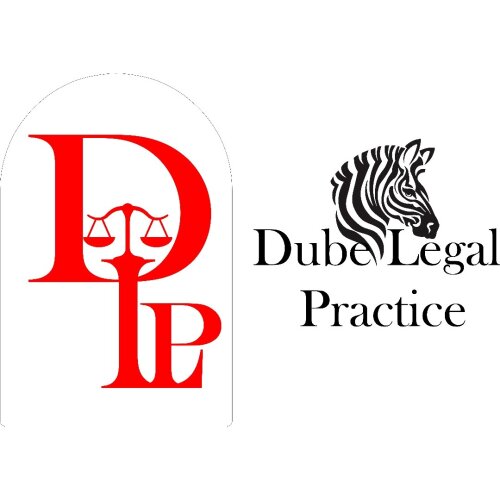Best Restructuring & Insolvency Lawyers in Bulawayo
Share your needs with us, get contacted by law firms.
Free. Takes 2 min.
List of the best lawyers in Bulawayo, Zimbabwe
About Restructuring & Insolvency Law in Bulawayo, Zimbabwe
Restructuring and insolvency law focuses on the legal processes that individuals, businesses, and organizations go through when facing financial difficulties that may make it impossible to meet their debt obligations. In Bulawayo, Zimbabwe, these laws help provide a framework for companies and individuals to either reorganize their financial affairs, negotiate with creditors, or, if necessary, wind up operations in a formal and orderly way. The primary aim of restructuring is to ensure that struggling businesses have a chance to return to profitability while insolvency processes help creditors recover as much as possible from distressed debtors in accordance with the law.
Why You May Need a Lawyer
Legal representation is crucial during restructuring and insolvency situations because these processes can be complicated and are governed by specific statutes, regulations, and court procedures in Zimbabwe. Some common scenarios where you may need legal advice include:
- When your business is unable to pay its debts as they become due
- If you are being threatened with liquidation by creditors
- If you are a creditor seeking to recover money from a debtor under insolvency
- If you wish to reorganize your debts or negotiate payment terms with creditors
- When you need assistance with court filings or understanding your legal obligations during insolvency
- If your assets have been seized or frozen due to court orders related to insolvency
- If you suspect fraudulent or unlawful activity as a creditor or debtor
A lawyer can help protect your rights, explain your options, assist in negotiations, and guide you through each step of the restructuring or insolvency process.
Local Laws Overview
In Bulawayo, Zimbabwe, restructuring and insolvency matters are regulated primarily by the Insolvency Act [Chapter 6:04] and related legislation, including the Companies and Other Business Entities Act [Chapter 24:31]. Some of the key aspects of local law include:
- Liquidation: The process through which a company’s assets are realized and distributed to creditors in order of legal priority before the company ceases to exist.
- Judicial Management: A court-supervised process where a rehabilitator (judicial manager) is appointed to manage a company to avoid liquidation and facilitate recovery.
- Scheme of Arrangement: A court-approved agreement between a company and its creditors or shareholders which provides a framework for restructuring debts.
- Creditor Rights: Creditors must follow specific legal procedures to claim debts, and their rights are prioritized according to law.
- Director and Officer Duties: Directors and officers are required to act in the best interests of the company and must not engage in conduct that could worsen insolvency.
- Personal Insolvency: Individuals who are unable to pay debts may be declared insolvent, with their assets managed by a trustee for the benefit of creditors.
These laws are enforced by the High Court of Zimbabwe with local registries, including those in Bulawayo, handling insolvency applications and related proceedings.
Frequently Asked Questions
What is insolvency?
Insolvency is the legal state where an individual or company cannot pay its debts as they fall due. It can lead to formal processes such as liquidation or personal bankruptcy.
What is the difference between liquidation and restructuring?
Liquidation involves winding up a company and selling its assets to pay creditors, after which the company ceases to exist. Restructuring, however, aims to reorganize and rehabilitate a struggling business to return it to profitability.
Can an individual be declared insolvent in Zimbabwe?
Yes, individuals who cannot pay their debts may be declared insolvent, allowing creditors to recover what they can through the individual’s assets under the supervision of a trustee or curator.
How does judicial management work?
Judicial management places a financially distressed company under the management of a court-appointed judicial manager, whose role is to restructure the business and try to save it from liquidation.
Who can file for insolvency proceedings?
Either a debtor or a creditor may initiate insolvency proceedings. The process requires filing a court application and meeting certain legal requirements as set out in the Insolvency Act.
What happens to employees in insolvency?
Employees have certain protections under Zimbabwean law and may have their outstanding wages paid as a preferred debt in the liquidation process, but they may lose their jobs if a business closes down.
What is a scheme of arrangement?
A scheme of arrangement is a court-approved agreement that allows a company to restructure its debts and obligations with the consent of creditors and shareholders, aimed at avoiding liquidation.
Do directors have responsibilities during insolvency?
Yes, directors must act in good faith, avoid fraudulent trading, and ensure that they do not worsen the financial position of the company to the detriment of creditors.
What assets are protected during insolvency?
Certain assets, such as those held in trust or excluded by law, may not form part of an insolvent estate. However, most assets owned by the debtor are typically available to pay creditors.
Can creditors repossess assets during insolvency proceedings?
Creditors may be able to repossess secured assets or file claims for debt recovery, but must follow strict legal procedures and may need court approval depending on the circumstances.
Additional Resources
If you are seeking additional information or support, consider exploring the following:
- The High Court of Zimbabwe - Civil Division, Bulawayo Registry
- The Law Society of Zimbabwe
- Zimbabwe Revenue Authority (ZIMRA) for information on tax obligations in insolvency
- The Department of Deeds, Companies and Intellectual Property
- Local banks and business advisory centers that offer financial restructuring guidance
Next Steps
If you are facing restructuring or insolvency issues in Bulawayo, consider the following steps:
- Gather all relevant financial information, including statements of assets and liabilities, creditor lists, and contracts.
- Seek the advice of a lawyer who specializes in restructuring and insolvency law in Zimbabwe. They can help assess your situation and recommend the best course of action.
- Engage with your creditors early to explore possible informal arrangements or negotiations.
- If required, file the appropriate court documents for liquidation, judicial management, or other insolvency processes as guided by your lawyer.
- Keep thorough records of all communications, agreements, and proceedings related to your financial situation.
Legal advice is essential to ensure you are following the correct procedures and to protect your interests during restructuring or insolvency. Contacting a qualified legal practitioner as early as possible can make a significant difference in the outcome of your case.
Lawzana helps you find the best lawyers and law firms in Bulawayo through a curated and pre-screened list of qualified legal professionals. Our platform offers rankings and detailed profiles of attorneys and law firms, allowing you to compare based on practice areas, including Restructuring & Insolvency, experience, and client feedback.
Each profile includes a description of the firm's areas of practice, client reviews, team members and partners, year of establishment, spoken languages, office locations, contact information, social media presence, and any published articles or resources. Most firms on our platform speak English and are experienced in both local and international legal matters.
Get a quote from top-rated law firms in Bulawayo, Zimbabwe — quickly, securely, and without unnecessary hassle.
Disclaimer:
The information provided on this page is for general informational purposes only and does not constitute legal advice. While we strive to ensure the accuracy and relevance of the content, legal information may change over time, and interpretations of the law can vary. You should always consult with a qualified legal professional for advice specific to your situation.
We disclaim all liability for actions taken or not taken based on the content of this page. If you believe any information is incorrect or outdated, please contact us, and we will review and update it where appropriate.











